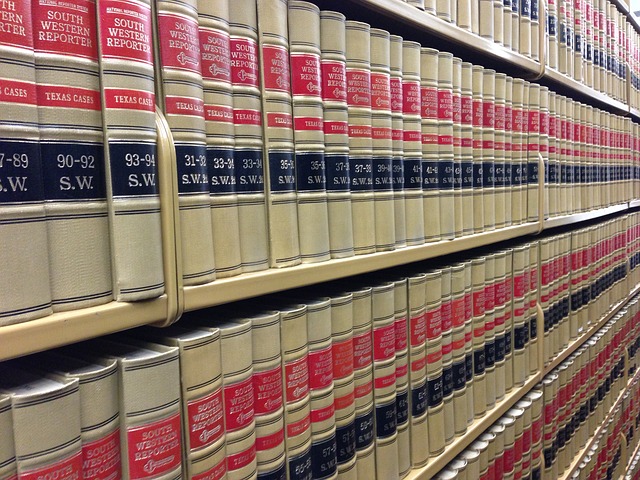

Pro-Super Releases Deed With New Dispute Resolution Features
Pro-Super Releases New Deed With Dispute Resolution Procedures Pro-Super has just released our latest SMSF deed upgrade, with comprehensive dispute resolution procedures. The default position for all trusts (including super funds) in which there is more than one trustee, is that those trustees must make their decisions unanimously. This makes sense, when you consider that […]
New Deed Enhancements To Save Your Time and Your Clients Money
Pro-Super Does It Again – New Deed Enhancements To Save Your Time and Your Clients’ Money If you have an SMSF client: Presently receiving a pension from their fund Who is approaching the point where they will start taking a pension Is receiving a pension, but may make non-concessional contributions in future Has transfer balance […]
Why You Should Only Ever Draw the Minimum Pension Payment
Why You Should Only Ever Draw the Minimum Pension Payment No, we’re not saying that you should restrict yourself to whatever your minimum pension payment is during a year, just that any excess you draw above that minimum should be treated as a partial commutation (and therefore a lump sum payment). Transfer Balance Cap Considerations […]
Exciting Upgrades to Pro-Super’s Trust Deed
Exciting Upgrades to Pro-Super’s Trust Deed The changes to superannuation introduced by last year’s Federal Budget will have a significant impact on many of our superannuation clients, especially those who have balances approaching or exceeding the $1.6m transfer balance cap. The changes introduced are largely taxation related, rather than changes to the Superannuation Industry (Supervision) […]
Disposing of Super Assets Before Death
Disposing of Super Assets Before Death Assume that a SMSF is in pension mode, has the surviving spouse of a couple as a member and that member is not well. In that case, it would pay you to examine what unrealized capital gains are presently sitting in the Fund. As part of taking care of […]
When Super Outlives Its Usefulness
When Super Outlives Its Usefulness The taxation of superannuation death benefits in the hands of adult children means that the time may come where you and your clients face the fact that super has outlived its usefulness to them. A superannuation benefit is fully exempt from tax when either taken by a person over 60 […]
LRBAs – Does the Bare Trustee Need to Prepare Accounts?
LRBAs – Does the Bare Trustee Need to Prepare Accounts? This is a quite reasonable question. Remember that, under a bare trust LRBA, the bare trustee (usually a company) holds legal title to the asset, whereas the super fund makes all of the payments in relation to the asset (including loan repayments) and collects the […]
Are Undistributed Unit Trust Distributions “Loans”?
Are Undistributed Unit Trust Distributions “Loans”? It is standard practice in many accounting firms to place any undistributed profits from a family or unit trust into a beneficiary loan account, as at 30 June each financial year. For years, Pro-Super has counseled against this approach where SMSF’s have an associated unit trust, because the ATO […]
Can A Super Fund Run A Business?
Can A Super Fund Run A Business? For years, the unofficial answer to this question has always been, “No, because it would breach the ‘sole purpose test’, which requires that the sole purpose of the fund is to provide retirement benefits to members, not to provide employment or other contemporary benefits to members.” All well […]
How Does a Child Under 18 Years of Age Become a SMSF Member, if They Need to be a Trustee?
How Does a Child Under 18 Years of Age Become a SMSF Member, if They Need to be a Trustee? A SMSF may establish a member’s account for a child under 18 years of age, however the SMSF rules state that all members must be trustees or directors of a corporate trustee. Children under the […]
What Rate of Interest Should a Fund Charge on In-house Asset Loans?
What Rate of Interest Should a Fund Charge on In-house Asset Loans? There is no established rate of interest chargeable on loans which are in-house assets, however there is a general requirement under Section 109 of the Superannuation Industry (Supervision) Act 1993 that all dealings with related parties be effected at arm’s length and on […]
Can a Trust Deed Defeat a Trustee in Bankruptcy?
Can a Trust Deed Defeat a Trustee in Bankruptcy? Sometimes, sometimes not. Often it is the legislation itself which either commands recovery or prevents access. This is a complex area, so we will only briefly cover some general principles here. The first rule is that a trustee of a SMSF receiving a demand for payment […]
When Does A Superannuation Fund Commence?
When Does A Superannuation Fund Commence? There are three elements necessary for the conclusion of any express trust in Australia (known colloquially as the “three certainties”): There must be certainty of intention to create the trust – usually (but not always) evidenced by a declaration of trust via a written and properly executed trust deed; […]
Can a Company be Co-Trustee With an Individual?
Can a Company be Co-Trustee With an Individual? Prior to the August 1999 amendments to the SIS Act (which repealed the old concept of an u201cexcludedu201d fund and introduced the term u201cself-managed superannuation fundu201d into the legislation), there were a number of super funds which had one or more individuals and a company as joint […]
Can a Trustee Be Changed Other Than By Deed?
Can a Trustee Be Changed Other Than By Deed? Until the last few decades, the law has generally considered that “what was done by deed can only be undone by deed”. However, in recent years, many State jurisdictions and trust deeds have simply required changes to be “in writing”. We have seen a number of […]
Can a Trustee Who is a Builder Build a House on SMSF Land?
Can a Trustee Who is a Builder Build a House on SMSF Land? In the normal course of events, a trustee cannot charge the SMSF for their time performing their duties as trustee. Arguably, this situation also extends to things such as “property management” (eg. collecting rents, inspecting rental properties, etc.) However, the situation is […]
What Happens When A Trustee Dies/Becomes Legally Disabled
What Happens When A Trustee Dies/Becomes Legally Disabled Take the usual SMSF situation where we have a two person fund with two individual trustees. The law states that where a fund has one member, to be defined as a self-managed superannuation fund (See Sec. 17A, SIS Act), it must have at least two individual trustees, […]
Can a Super Fund invest jointly with a member in Real Property?
Can a Super Fund invest jointly with a member in Real Property? Yes, so long as the property was not previously owned by the member or a related party of the member (exception is “business” real property”) and so long as the property is not leased back to a member or related party (once again, […]
Can an Employer Contribute to a Non-resident Fund?
Can an Employer Contribute to a Non-resident Fund? One of our clients has a multi-national company as a client. This company has seconded an executive to Australia from the USA for a few years. He is resident here, but has his own 401K pension plan in the States. The question was whether or not his […]
What Happens if a Trust Deed Doesn’t Have the Power to Amend?
What Happens if a Trust Deed Doesn’t Have the Power to Amend? Run for the hills! Seriously, we came across an appallingly drafted trust deed the other day, in which the drafter had neglected to insert a clause giving the trustees (or anyone else, for that matter) the power to amend it. This is very […]
















